‘London has a punk attitude – it has enabled somebody like me to emerge in this extremely niche field’: designer Natsai Audrey Chieza
As we interview key figures around London Design Festival 2024, Natsai Audrey Chieza discusses biodesign, previews her ‘Gathering’ lamp, and ponders the role of the festival
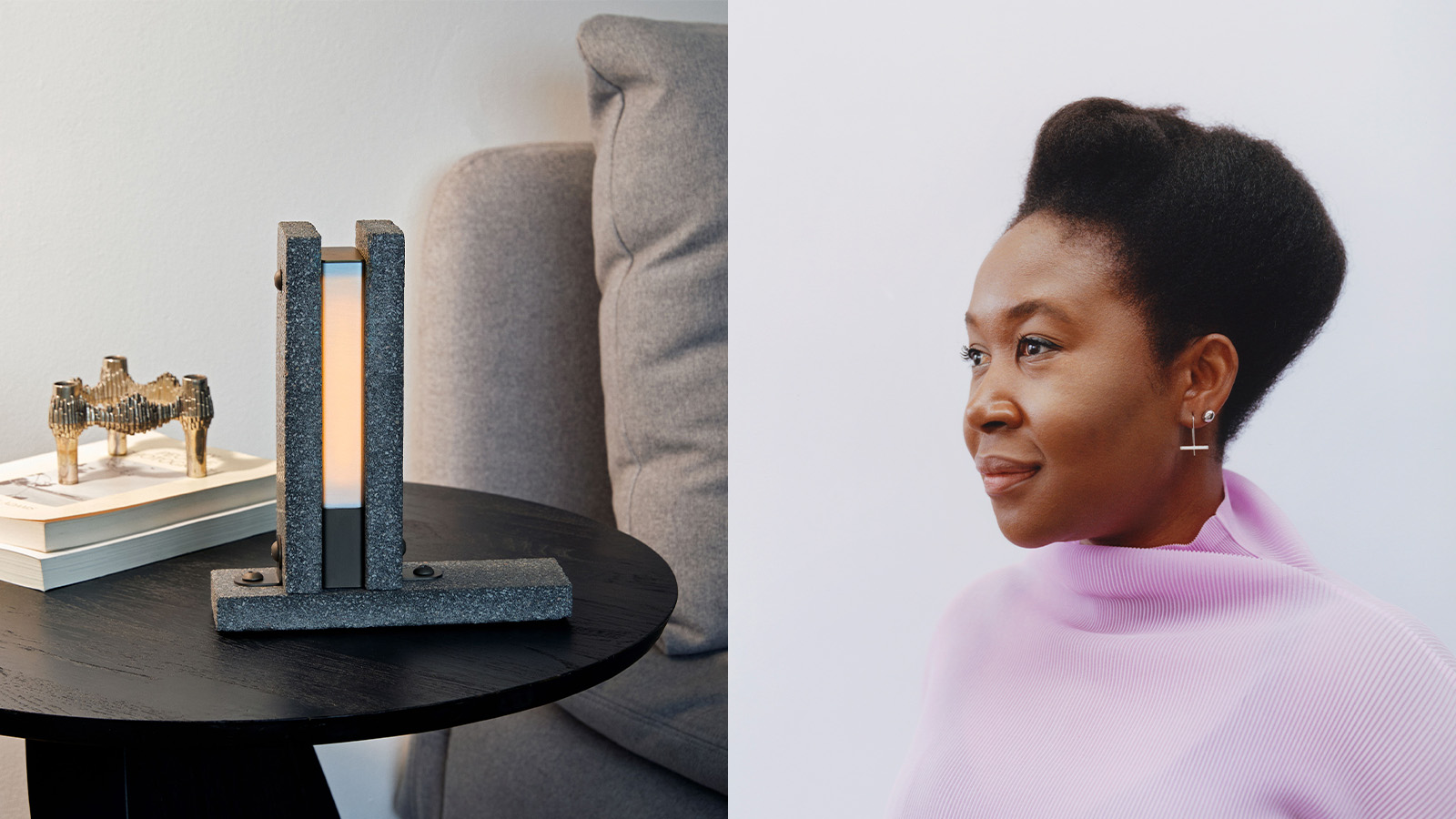
Receive our daily digest of inspiration, escapism and design stories from around the world direct to your inbox.
You are now subscribed
Your newsletter sign-up was successful
Want to add more newsletters?

Daily (Mon-Sun)
Daily Digest
Sign up for global news and reviews, a Wallpaper* take on architecture, design, art & culture, fashion & beauty, travel, tech, watches & jewellery and more.

Monthly, coming soon
The Rundown
A design-minded take on the world of style from Wallpaper* fashion features editor Jack Moss, from global runway shows to insider news and emerging trends.

Monthly, coming soon
The Design File
A closer look at the people and places shaping design, from inspiring interiors to exceptional products, in an expert edit by Wallpaper* global design director Hugo Macdonald.
Designer Natsai Audrey Chieza dreams of a future where everything from the fibres of our clothing to the bricks of our buildings is derived from living organisms. Born in Harare, Zimbabwe, Chieza studied architecture in Edinburgh and Material Futures in London before embarking on what she describes as a ‘journey through biodesign’.
She is the founder of Faber Futures, a consultancy and creative research lab dedicated to sustainable product development, and last year she launched Normal Phenomena of Life, her own consumer biodesign brand. Now based in Oslo where she enjoys a closer connection to nature, Chieza maintains close ties to London, the city that launched her career and remains the base of her agency's operations today. This year, as she receives the London Design Festival 2024 Design Innovation Medal, we caught up with her to discover what’s next.
Natsai Audrey Chieza on innovative design and London Design Festival 2024
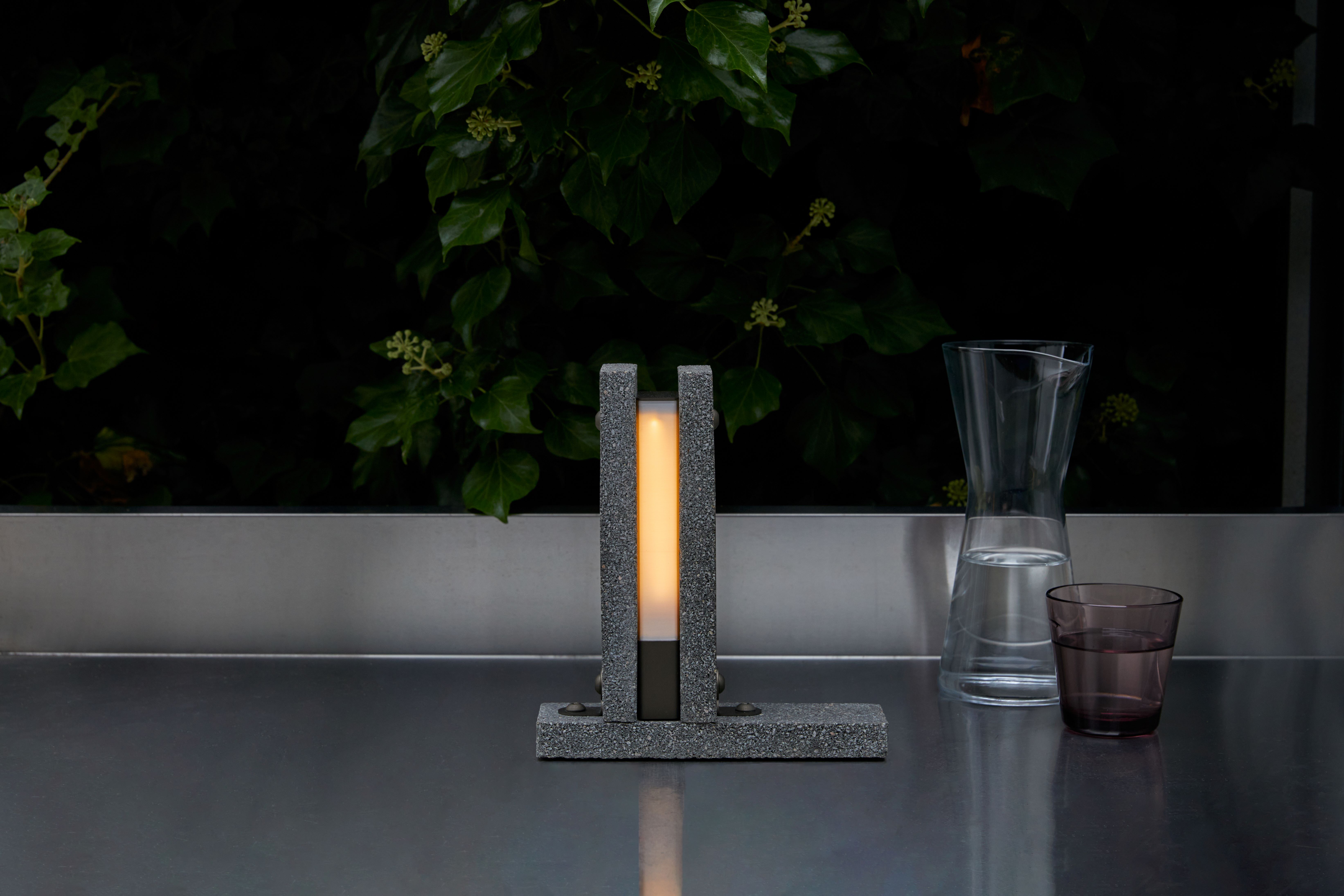
The ‘Gathering’ lamp, NPOL Original, Normal Phenomena of Life
Wallpaper*: Last year you launched, Normal Phenomena of Life (NPoL) – a new consumer biodesign brand, selling limited-edition products created by living organisms such as bacteria, algae, and mycelium. Why?
Natsai Audrey Chieza: I’ve always felt that we need to test the measure of biodesign concepts through the market. We wanted to create a place where we could showcase everything possible in the biodesign field but be unencumbered by any existing ideas or notions of business models, infrastructure, supply chain, commitments. We wanted to work from scratch to define the vision we had that was predicated on having worked in this space for a really long time and our understanding of what the issues across the value chain were. We're the first design-led platform that is articulating a vision of bio-based products that can bring about a biophilic culture that’s needed to act on the climate crisis.
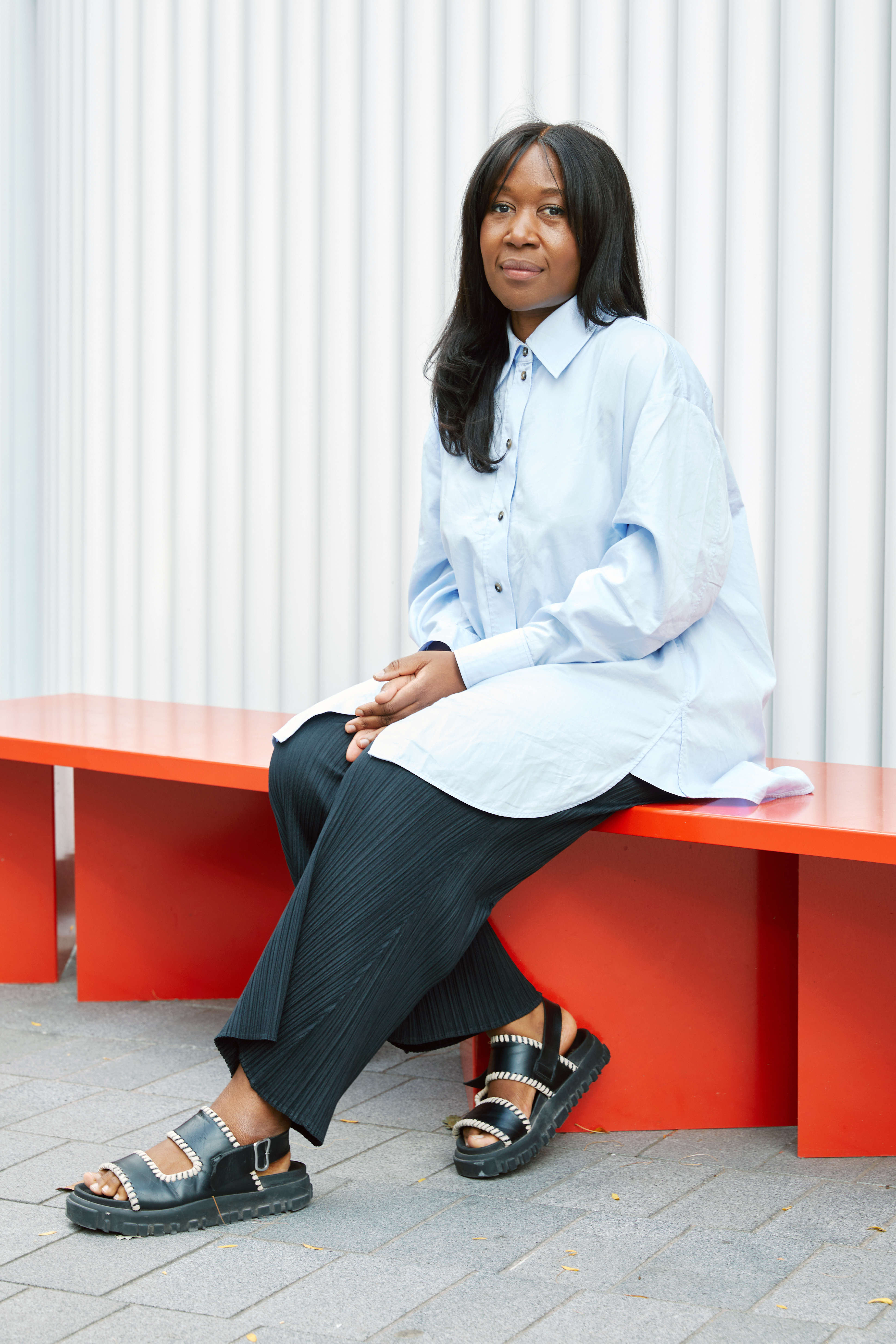
Natsai Audrey Chieza
W*: Your products to date have included a jacket made using a microbial dye and a series of limited edition prints made using an algae-derived black pigment. Can you tell us how your latest product launch, the Gathering Lamp, came about?
NAC: The ‘Gathering’ lamp shows how you really need to bring design into the innovation cycle early on to understand what the opportunities are. We identified Biomason, a really exciting company in the US that is working with organisms that turn sand into stone––you ferment them with some sand and some nutrients, and they turn it into a biomaterial that is lighter and stronger than concrete (Biolith®). The lead time to acquire the bioconcrete was too long for this project but they were able to supply us with a palette of samples.
These grey tiles have a very regular shape and size so we worked with London studio Mitre & Mondays to figure out a way of joining them together to create a lamp that is easy to assemble and disassemble. It uses no glue and is completely recyclable.
Receive our daily digest of inspiration, escapism and design stories from around the world direct to your inbox.
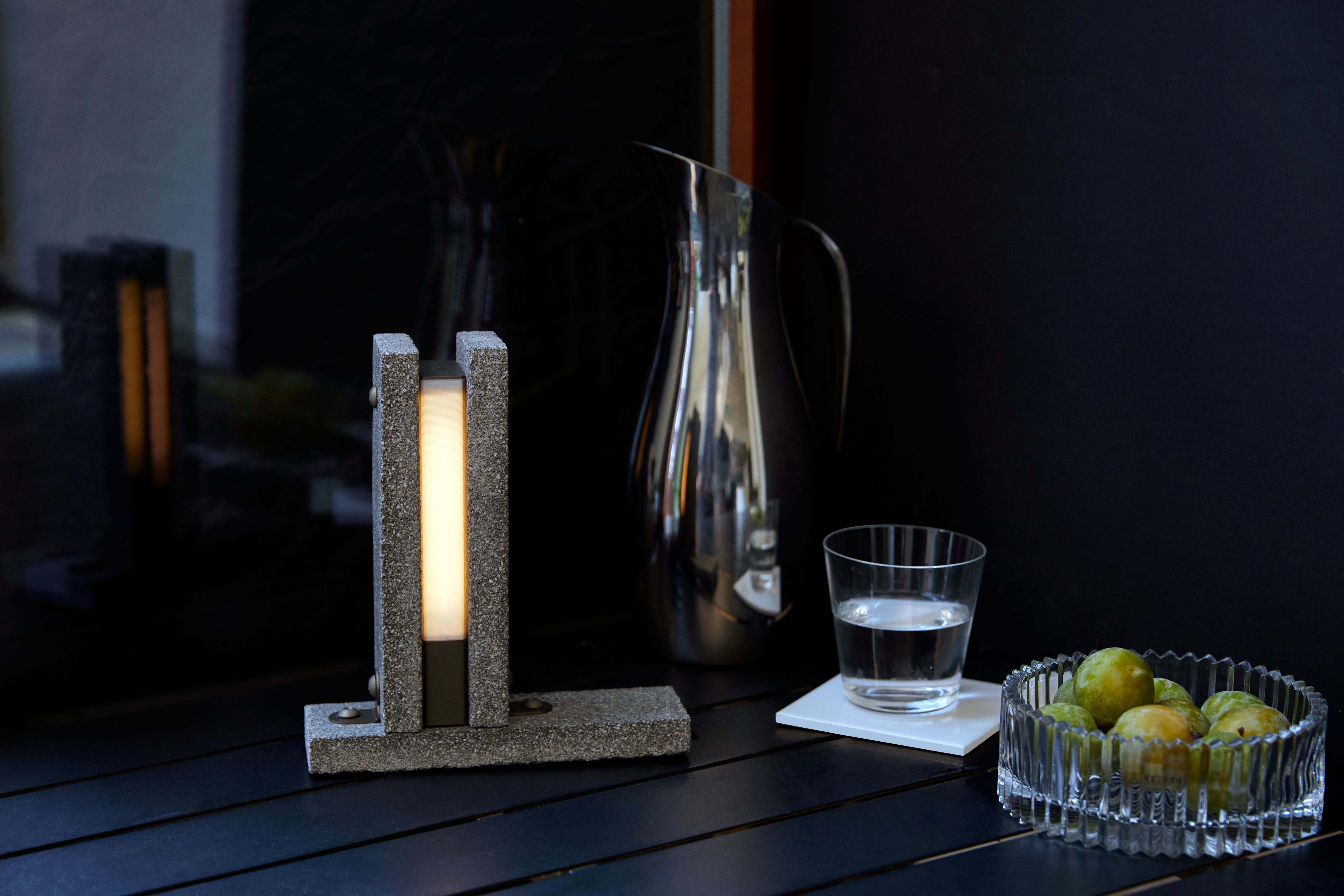
The ‘Gathering’ lamp, NPOL Original, Normal Phenomena of Life
W*: What has the biggest challenge been?
NAC: With the ‘Gathering’ lamp, we are starting to articulate what a circular bioeconomy needs to look like. It's not good enough to just bring these materials to bear, what we need to be doing as designers alongside that is thinking strategically about circularity. The biodesign field isn't quite attuned to that yet, I think it’s going to take a few decades.
W*: What are your ambitions for NPoL? Are you restricted by scale?
NAC: Not at all. We have really high ambitions. We're obsessed with scale and always exploring how we can scale up the fermentation process. ‘What does it look like on a petri dish? OK, what does the same thing look like at six inches by six inches? Can we make a garment? Can we make four? 300? Can we place it within an architectural context?’ The technology is there and I’m now seeing opportunities as a designer to explore much larger-scale projects.
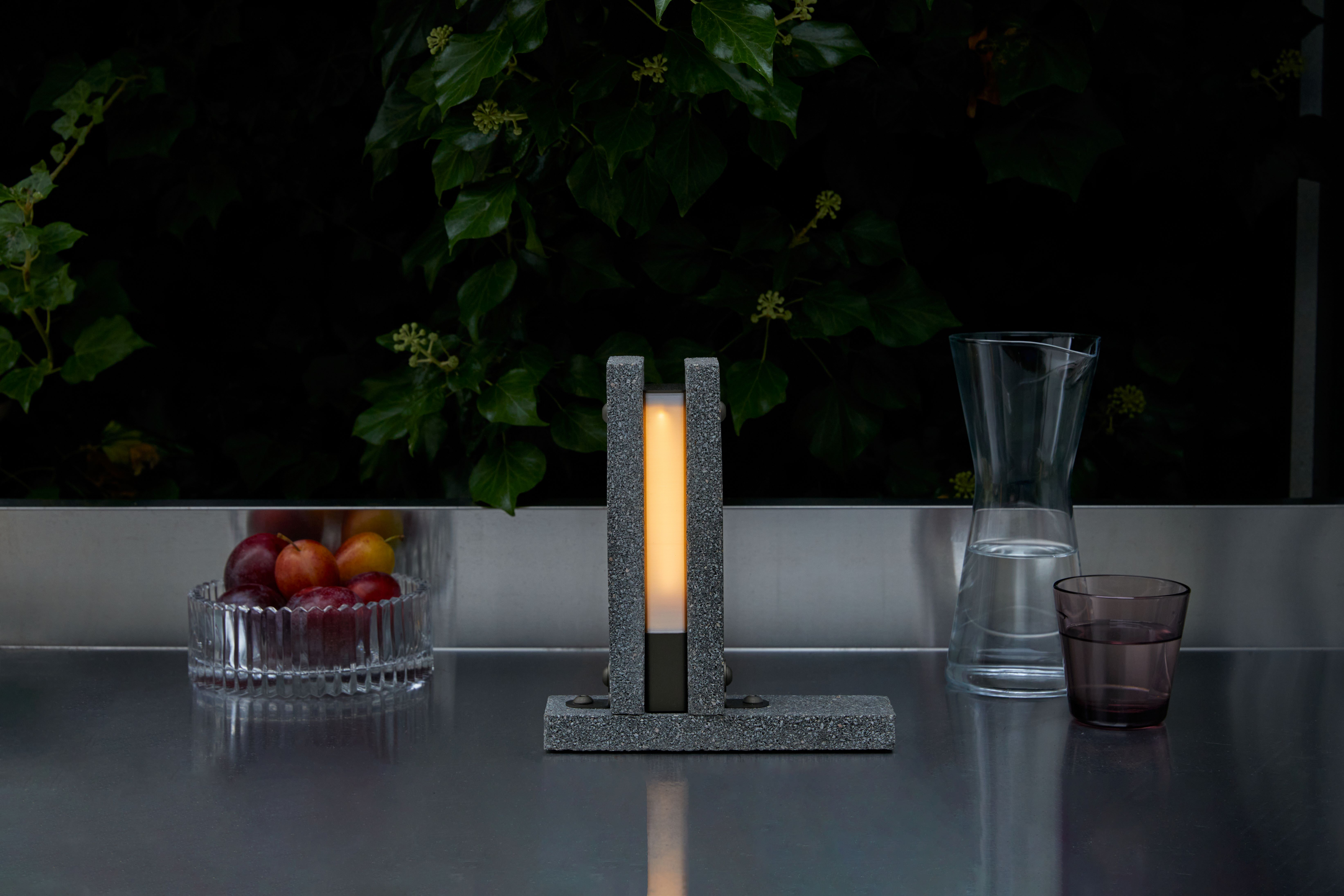
The ‘Gathering’ lamp, NPOL Original, Normal Phenomena of Life
W*: This year, you have been awarded the London Design Festival’s prestigious Innovation Medal. What does receiving a London Design Medal mean to you?
NAC: London is everything to me. It has the most exciting and exuberant culture and that's not by accident. What happens when you colonise a lot of places is that you get a lot of people from all over the world, and I think that's always been the UK’s strength, and certainly that's London's appeal and attraction. London has a punk attitude that I’ve always lent into and has enabled somebody like me to emerge from the UK in this extremely niche field; it is expected of you to be doing something different, and I love that. There are very few places on this planet that offer that.
W*: What do you think the role of a design festival should be in 2024?
NAC: This is controversial, but I think design festivals can be a waste of resources and time. They make people do things they were never planning on doing, because you've got to ‘do something’, and I think that's problematic. I just wish that we could strategically come up with what that ‘something’ is ahead of time and, actually, by forum, as a design industry, think very hard and carefully about what design is for, and if we have the necessary infrastructures to facilitate the systemic change that has to happen in design as a practice to make it possible for us to come to this world with solutions that are going to be resilient. I just worry that we spend a lot of time navel-gazing and showcasing and not attending to the structural inadequacies that prevent the design industry from living to its promise of being a force for good.
Ali Morris is a UK-based editor, writer and creative consultant specialising in design, interiors and architecture. In her 16 years as a design writer, Ali has travelled the world, crafting articles about creative projects, products, places and people for titles such as Dezeen, Wallpaper* and Kinfolk.